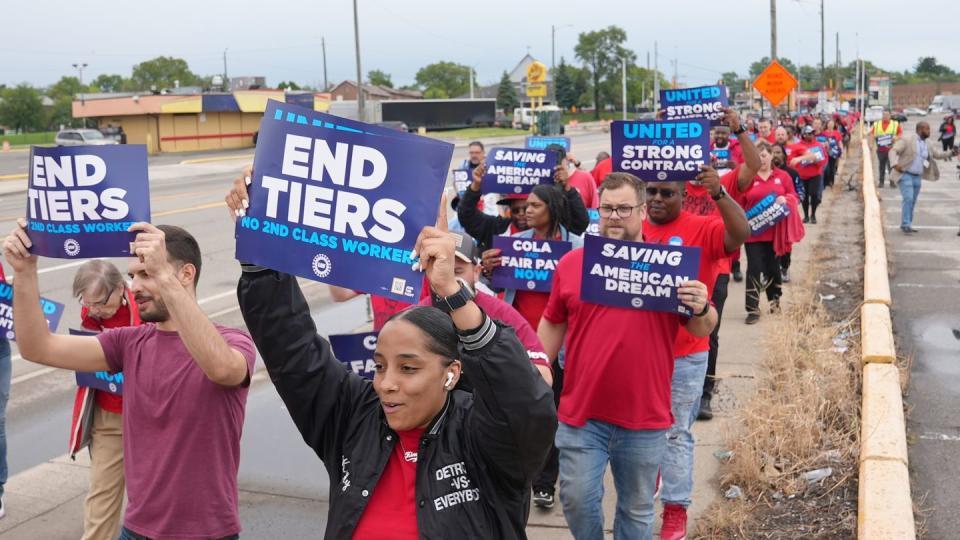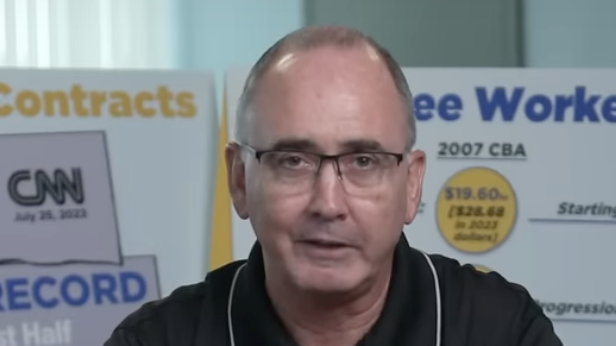UAW Strikes Detroit Three, All at Once

The first-ever Stand-Up strike will rotate walkouts at various Detroit Three plants without prior warning.
The UAW’s last strike, against GM in 2019, lasted 40 days and cost the automaker about $3 billion.
Most of the union demands would reverse concessions the UAW made after the Bush and Obama administrations’ bailouts of the US auto industry some 14 years ago.
About 13,000 United Auto Workers stood up and walked out at midnight Thursday from Ford’s Michigan assembly plant producing the Bronco and Ranger, Stellantis’ Toledo assembly complex building the Jeep Wrangler, and General Motors’ Wentzville assembly plant in Missouri, which builds the Chevrolet Colorado, GMC Canyon, and the aged Chevy Express and GMC Savanna full-size vans.
The UAW also planned a mass rally for 4 pm Friday at the UAW-Ford National Program Center with union President Shawn Fain to be joined by independent Sen. Bernie Sanders from Vermont.
“Tonight, for the first time in our history we will strike all three of the Big Three at once,” Fain—using the old nickname for what is now better known as the Detroit Three—told the UAW’s 150,000 members via Facebook Live about two hours before the strike deadline.
In 1936-37, the UAW staged a Sit-Down strike against GM in which workers occupied the Flint, Michigan, plant and relaxed and played games rather than assemble bodies.
The first-ever Stand-Up strike will rotate walkouts at various Detroit Three plants without prior warning.
“The locals that are not yet called on to join the Stand-Up strike will continue working under an expired agreement. No contact extensions,” Fain said on Facebook Live. Though the contract has expired, terms and conditions remain in place, and the union members cannot be fired or disciplined for no reason.

“This strategy will keep the companies guessing,” Fain said. “It will give our national negotiators maximum leverage and flexibility in bargaining. And if we need to go all out, we will. Everything’s on the table.”

 Yahoo Autos
Yahoo Autos 